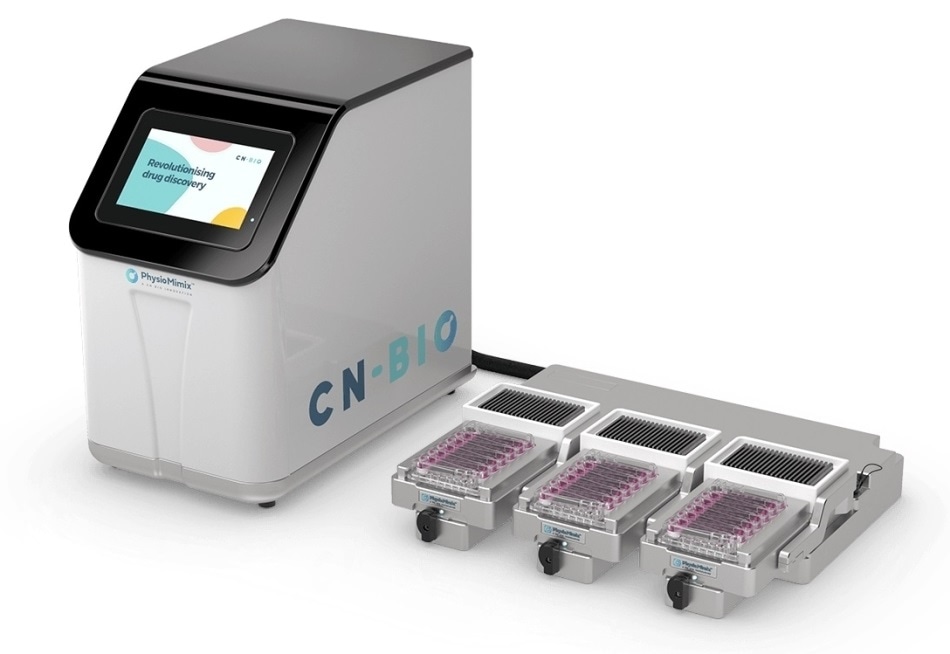CN Bio, a leading cell culture company, that has developed single and multi-organ microphysiological systems (MPS) to improve the accuracy and efficiency of drug discovery, today announced a collaboration with Imperial College London, a world-class research university. The research will harness CN Bio’s Liver-on-Chip technology to advance the understanding of the underlying mechanisms of alcoholic hepatitis and uncover novel targets for drug discovery and development.

CN Bio’s PhysioMimix™ microphysiological system
Despite being an increasingly prevalent liver disease, the pathophysiology of alcoholic hepatitis is not fully understood, no evidence-based treatments are available that improve survival beyond a month. As part of the collaboration with Imperial College London, CN Bio’s PhysioMimix™ MPS has been adopted by Professor Mark Thursz, a leading academic in Hepatology, to further his research into the disease by providing reliable human-relevant data, in vitro. Prof. Thursz will harness CN Bio’s 3D Liver-on-Chip technology to model the disease at a molecular and cellular level, including the distinct metabolomic profile observed in patients. The research aims to discover potential therapeutic targets for which novel drugs treatments can be developed.
CN Bio’s proprietary Liver-on-Chip technology enables longer term in vitro culture (>1 month) of primary liver cells in 3D microtissue structures for modelling a range of human liver diseases and their progression. The Company has developed assays for Non-Alcoholic Fatty Liver Disease (NAFLD)/steatosis and Non-Alcoholic Steatohepatitis (NASH) disease states, both of which are available as fee-for-service work.
This incredibly important research demonstrates a growing acceptance and adoption of advanced organ-on-chip models by the academic community, for mimicking liver diseases in vitro to investigate the mechanisms behind them. By using our technology in R&D efforts against yet another liver disorder, we hope to better inform drug discovery processes and fast-track investigations into new drug candidates.”
Dr Tomasz Kostrzewski, Director, Biology, CN Bio
Alcoholic hepatitis is the most severe manifestation of alcohol-related liver disease, with a greater than 50% mortality at one year. It is proving challenging to find an effective treatment, in part due to the gaps in our knowledge of its pathophysiology. Harnessing CN Bio’s microphysiological technology, we hope our research will fill these gaps and improve our understanding of the molecular mechanisms that contribute to the changes seen in patients and ultimately reveal novel treatment targets."
Professor Mark Thursz, Professor of Hepatology, Head of Department, Imperial College London